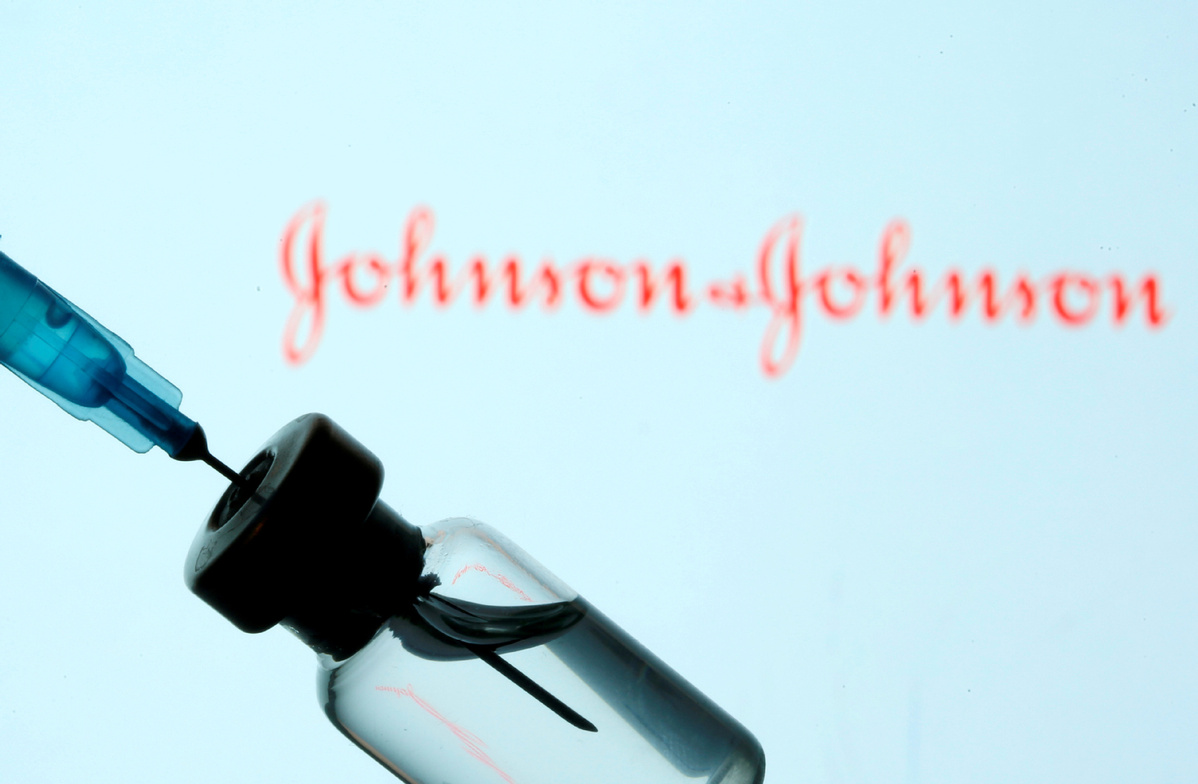Use of Johnson & Johnson vaccine halted


United States health authorities have recommended a pause on the use of the novel coronavirus jab from pharmaceutical company Johnson & Johnson, just one day after the first batches of the vaccine were sent to Europe.
The US Food and Drug Administration and the Centers for Disease Control and Prevention issued the advice on Tuesday "out of an abundance of caution" after detecting six cases of a rare and serious type of blood clotting among 6.8 million vaccinated individuals. All six cases involved women between the ages of 18 and 48.
Prior to this announcement, European Health Commissioner Stella Kyriakides had welcomed news that the first batches of the vaccine were sent from the US on Monday. Kyriakides said that an initial order of 55 million doses of the treatment would help the EU meet a target of vaccinating 70 percent of all adults during the summer.
Should drug regulator the European Medicines Agency, or EMA, follow the FDA's lead and recommend against use of the treatment, Europe could expect further delays to its already sluggish vaccine roll out.
So far, just under 17 percent of EU citizens have received treatment, according to the European Centre for Disease Prevention and Control, compared to around one third in the United States and almost half in the United Kingdom.
The EMA confirmed on Friday that it is investigating the Johnson& Johnson jab following what at that time were four confirmed cases of clotting in the US, one of which was fatal. The EMA said it is "currently not clear" if there is a causal association between the vaccine and clotting and it is "investigating these cases and will decide whether regulatory action may be necessary".
US-based Johnson & Johnson said in response: "We are aware that thromboembolic events including those with thrombocytopenia have been reported with COVID-19 vaccines. At present, no clear causal relationship has been established between these rare events and the Janssen COVID-19 vaccine." Janssen is the name of a Johnson & Johnson subsidiary that developed the vaccine.
Several EU member states, including France, Germany and Italy, were quick to pause the vaccine from Oxford University and AstraZeneca due to rare cases of blood clotting among the vaccinated.
Both the so-called Oxford vaccine and the Johnson & Johnson treatment are viral vector vaccines, meaning they use modified versions of a different virus to provoke an immune response. They differ in functionality from two other widely distributed treatments from Pfizer and Moderna, which use messenger RNA technology.
On Monday, Australia decided against ordering the Johnson &Johnson treatment. The country had been in talks with the pharmaceutical company, which had asked the Australian government for provisional registration.
Australia's health minister, Greg Hunt, said the jab was ruled out following advice from a government scientific advisory group.
"Johnson & Johnson is another viral vector vaccine and we have no advice recommending, at this point, that the government purchase any additional viral vector vaccine," Hunt told reporters, alluding to the fact that Australia has already placed orders for close to 54 million doses of the Oxford vaccine.

































